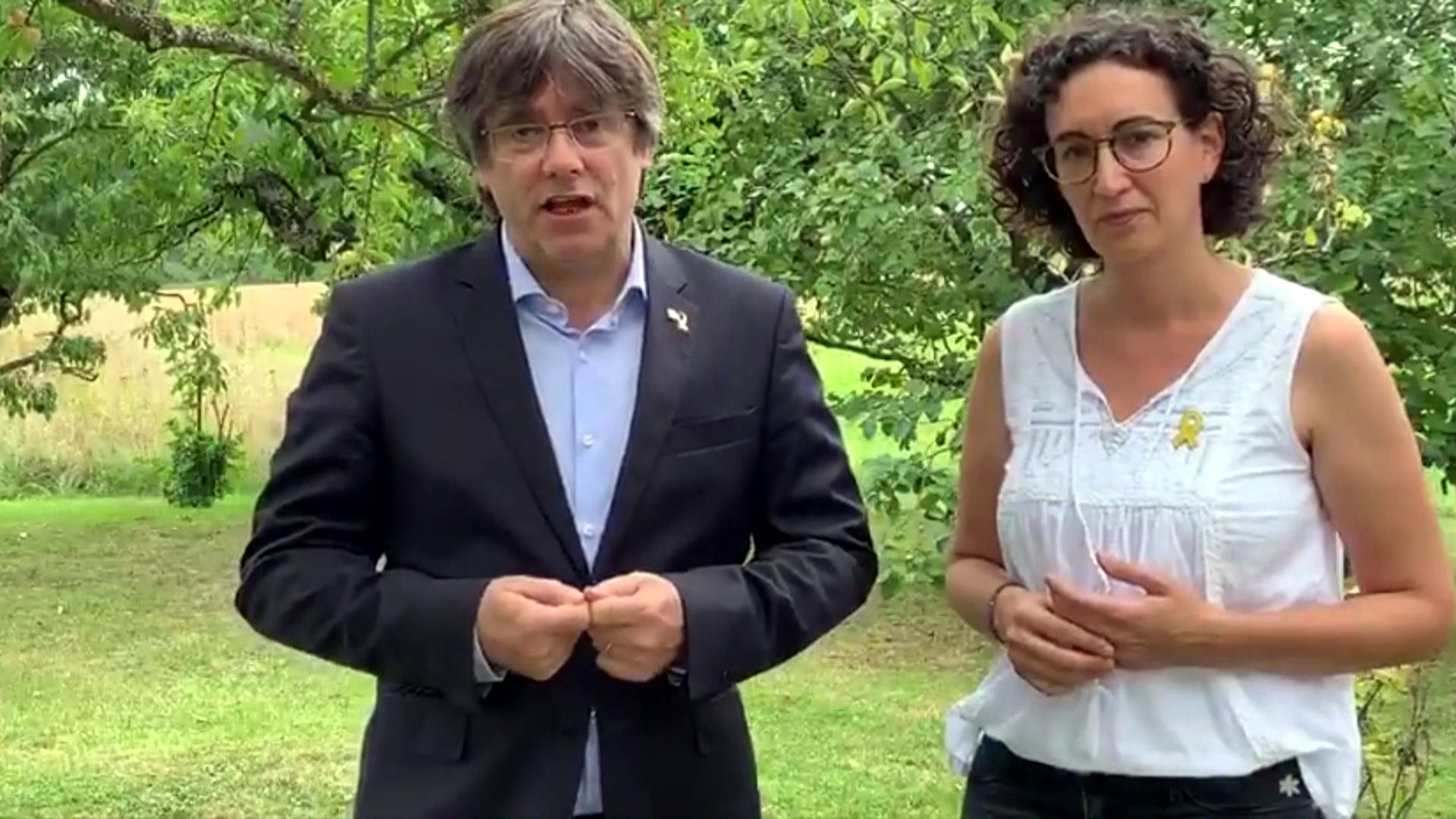Judicial onslaught. The judge of Spain's National Audience court, Manuel García-Castellón, has rejected the appeal presented by public prosecutors against his decision to elevate the Democratic Tsunami protest platform case to the Supreme Court asking it to investigate Catalan president-in-exile and MEP Carles Puigdemont for terrorism offences, in addition to the general secretary of the Catalan Republican Left (ERC), Marta Rovira, and ten other defendants, as announced by the court this Thursday.
The judge maintains that there is evidence of terrorism against the twelve defendants, despite the fact that the manager of Barcelona-El Prat airport has informed him that minimal delays were caused by the massive protest on September 14th, 2019, called in reaction to the Supreme Court's verdicts on the leaders of the independence process, and that an EU agency (EASA) has told him that the demonstration did not affect air safety. In addition, medical reports have ruled out that the death of a French citizen at the airport, from a heart attack, was due to the protest. There has been no response from NATO, whom the judge consulted last December, as part of a flurry of activity to reactivate a case dormant that had been dormant for four years.
By contrast, the view of the prosecutor was that the actions of which the defendants are accused would, at most, be consistent with a crime of public disorder, while the defence lawyers insist that they did not commit a crime at all.
In a second resolution, the same judge rejects Marta Rovira's appeal against the decision to send a letters rogatory request to Switzerland, asking that her whereabouts be communicated to the Spanish authorities. In December, the ERC politician's lawyer, Iñigo Iruin, told the judge to cancel that order because she was taking part voluntarily in the case. The court had complained that the ERC leader had not indicated any address in Switzerland to notify her of the notifications, despite the fact that the Spanish address of her lawyer was included.
Amnesty negotiation
Once again with these two resolutions, the judge has released decisions at a key political moment. This Thursday, Together Catalonia (Junts) has agreed to back the existing amendments to the amnesty law with the PSOE, despite its concern that those accused of terrorism in the CDR and Tsunami cases are not shielded under the current bill.
Arguments with Vox and the PP
In the resolution, the judge departs from the views of the prosecutors and maintains his position - encouraged by the accusations of far-right Vox, of the Dignidad y Justícia terrorism victims group (close to the People's Party), and of two injured Spanish police officers - and maintains that the court process so far confirms the initial thesis that the events can be classed as a terrorism crime.
The judge concludes: "The gravity of the crimes that, at this moment, can be seen, the clear impact that they had on the general interests, and on essential economic structures of the state, the specific damages that were caused to the victims and the serious injuries suffered by the victims of the crime, not only require clarification through the action of justice, but also demand, in defence of legality, that their investigation and prosecution be carried out by the judicial body that holds the objective and functional competence for this, which in this case would be [the Supreme Court], as indicated in the exposition that [the appeals] intend to deactivate".
"Disrupt" electoral commission
García-Castellón even includes the call for public gatherings on the usual day of reflection which Spain holds on the eve of an general election - in this case, that of November 10th, 2019 - amongst the offences which he asserts are terrorism, and maintains that "the JEC (Central Electoral Commission) was disobeyed and the day of reflection was disrupted". In addition, he points out that "November 8th was the first day that the Tsunami app was used" by the anonymous, social-media based protest platform.
The Supreme Court has established that the members of the European Parliament who are prosecuted come under its competence, the same as for MPs in the Spanish Congress. This view is not shared by Gonzalo Boye, defence lawyers of president Puigdemont.

